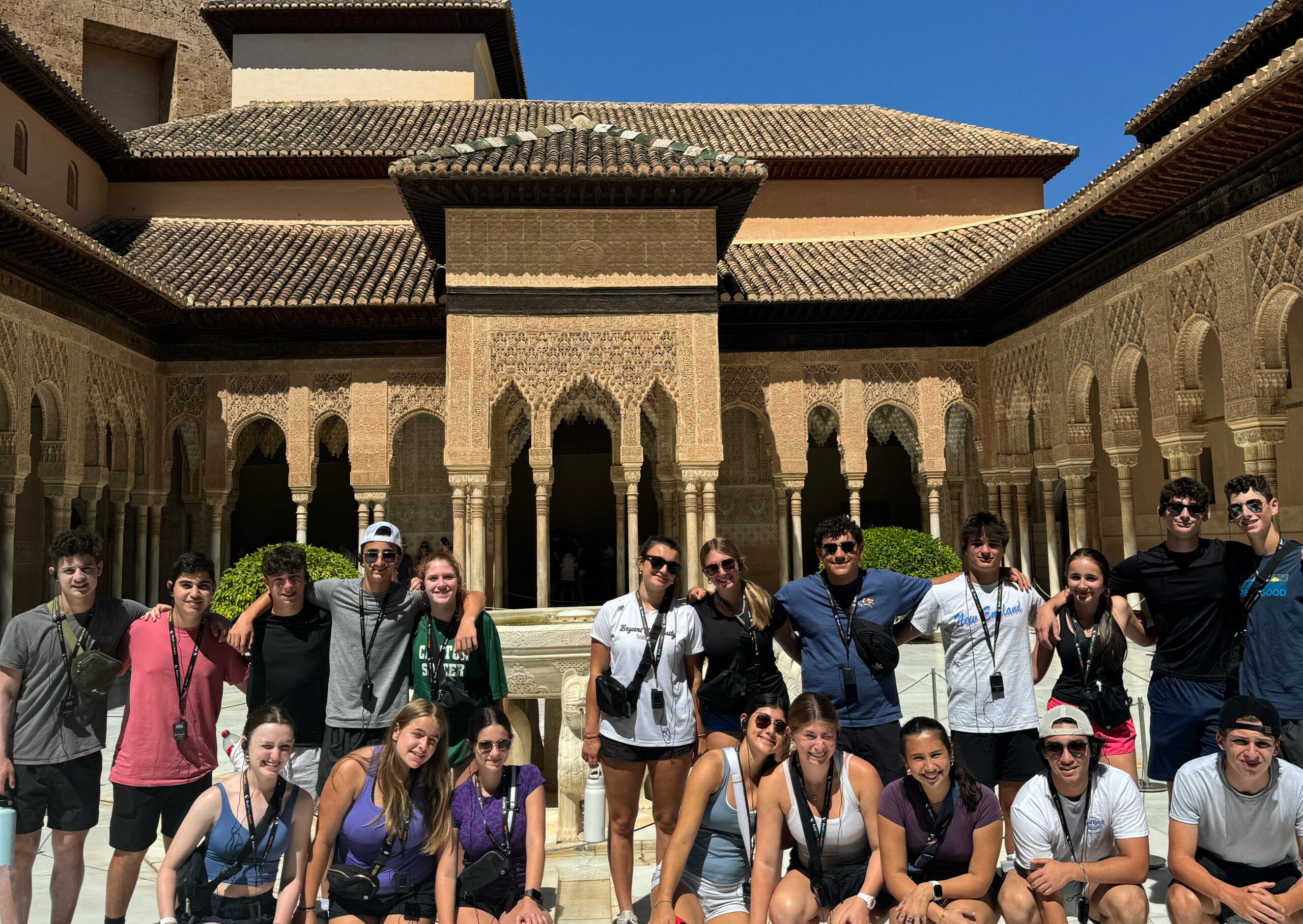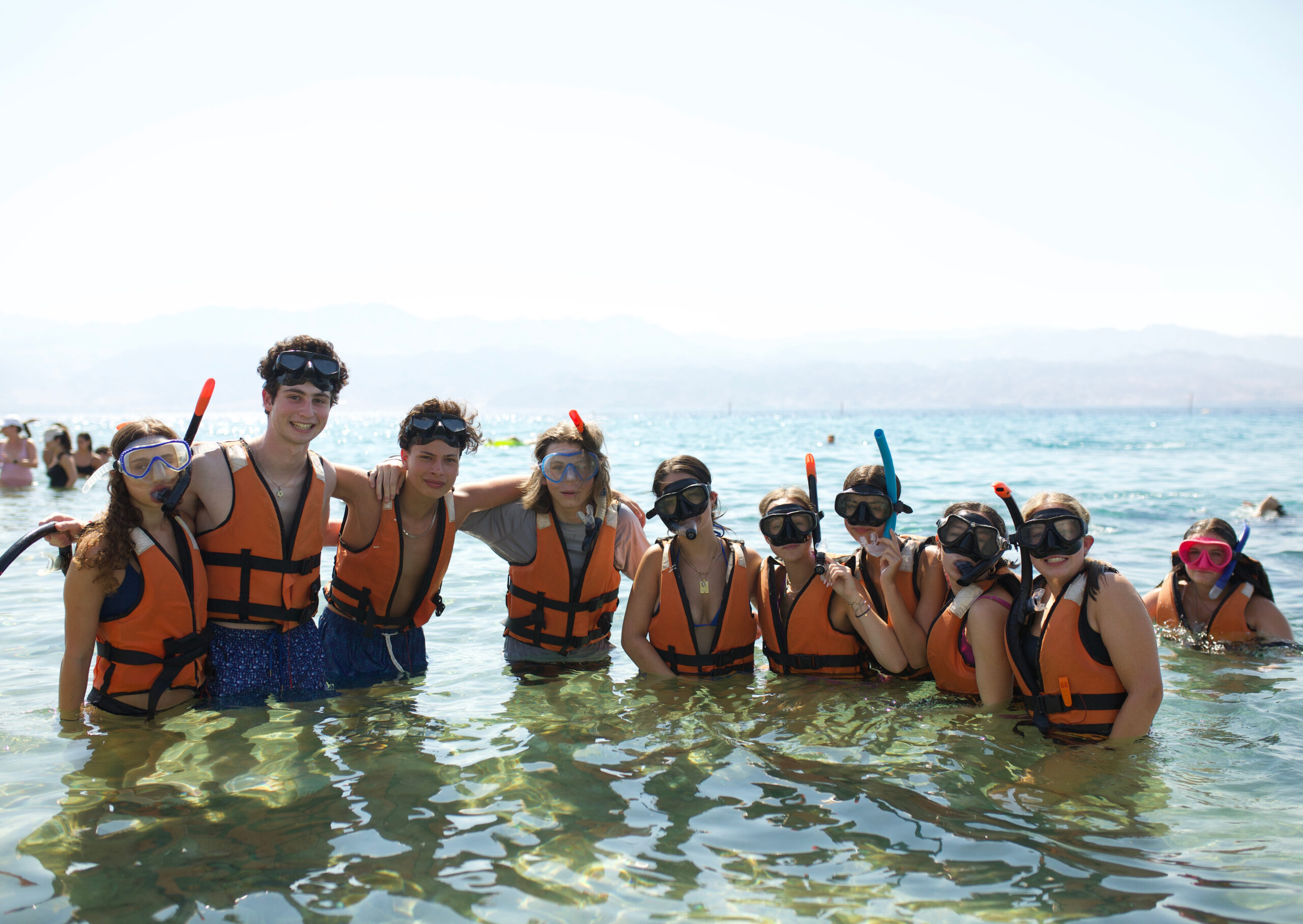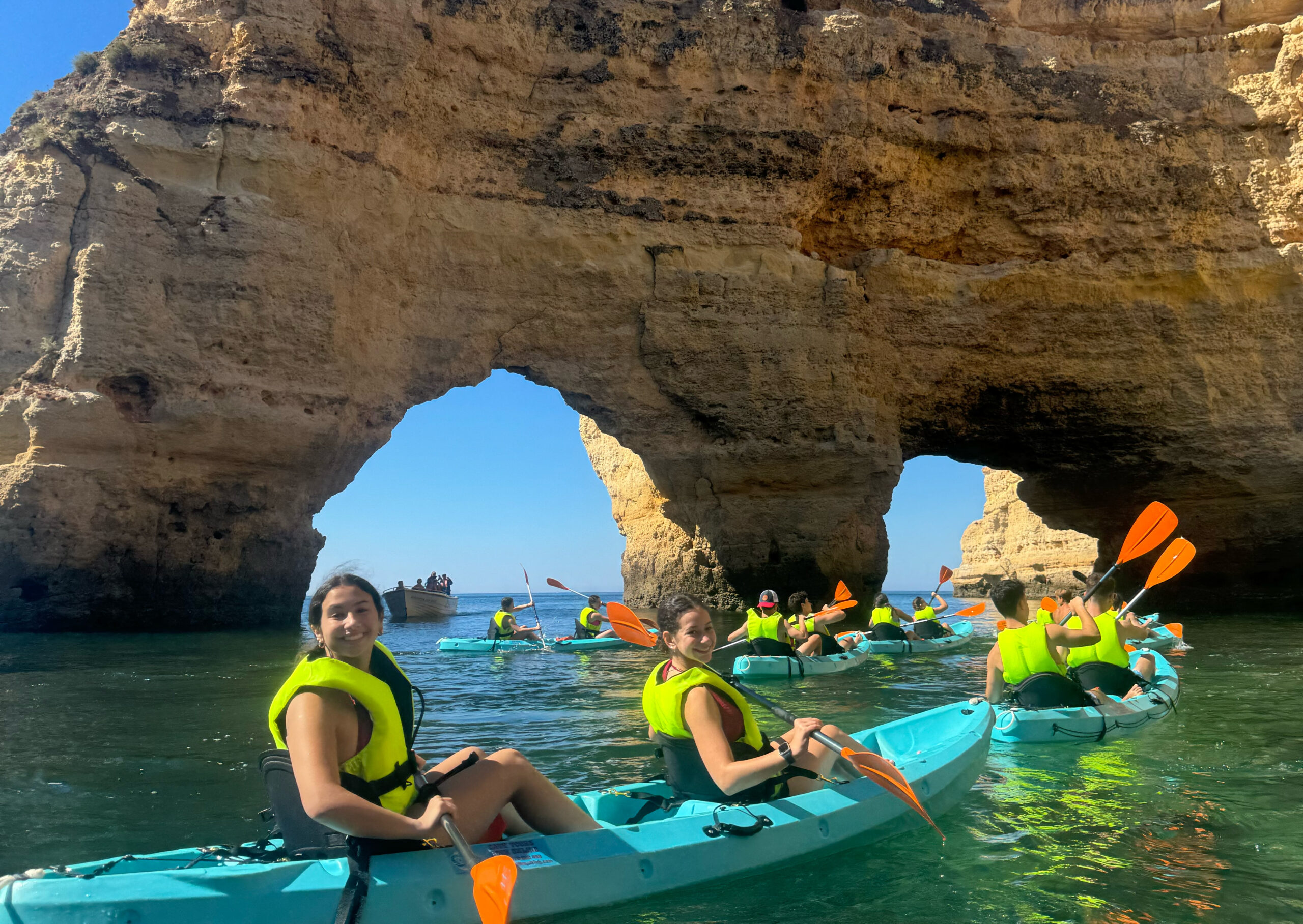Our most frequently asked questions about this program are answered below. Additional program-wide FAQs are also available. Still need something? We’re here to help! Contact us.
How will my teen travel to the program?
BBYO requires all North American participants to fly on the group supervised flight for this program. Flight costs are not included in the program’s land cost. BBYO will purchase a ticket for each traveler and charge the family directly. The flight cost for programs with supervised flight options will be announced, along with the flight details for all programs, in the spring. The supervised flight for this program will depart from the New York City area, typically Newark Liberty International Airport (EWR) or John F. Kennedy International Airport (JFK). Learn more about flying to the program.
How is the program staffed?
Each group is accompanied by a team of madrichim (counselors), a local European tour leader, and a bus driver. Senior field staff also circulate between our groups for extra support. Staff names are sent out approximately 2–3 weeks prior to your departure as part of the pre-trip preparation emails. Staff are asked to make welcome calls to teens before departure. Feel free to ask them any remaining questions you may have. Learn more about our staff team.
What’s the summer weather like?
The weather throughout Spain and Portugal is a typical Mediterranean climate—dry heat, cool evenings, and little to no rain. Temperatures will typically be in the 80s and 90s. Due to the dry nature of the heat in the Mediterranean, the sun is deceptively strong and you should plan to bring plenty of sunscreen and a good hat for outdoor touring. The weather in France is usually warm and mostly sunny. Daytime temperatures range from the the low to mid 70s, and can reach into the mid-80s on some afternoons.
What’s the typical group size?
We anticipate the group size for Europe Discovery for Seniors to be about 20–45 teens. For details on bus assignments and friend requests, please visit our General FAQ page.
What’s the food like?
You’ll try delicacies like paella, patatas bravas, and peixinhos da horta in Spain and Portugal. In France, expect foods like crêpes, croissants, and macarons. When traveling, your teen may encounter new foods that will not be to their liking, so we ask teens to be flexible and have snacks and other alternatives on hand just in case.
As a travel-based program, our meals take a variety of forms and may include hotel buffets, restaurants, catered meals, and allowance funds for participants to purchase a meal on their own. When a meal is served in a public buffet format (e.g. hotel breakfast), we will always ensure that there are vegetarian, pescatarian, or dairy options available and we will not restrict teens from eating the food of their choice.
Some meals may be provided via a cash allowance where teens will be given money to purchase the food of their choice, called a pizur meal. Such meals are typically arranged in an area where there are multiple restaurant options and teens can choose the food of their liking. When time is limited for meal choice, staff may choose to facilitate meal orders on behalf of teens using their allowance funds.
Participants with special dietary needs (i.e. lactose intolerance, gluten-free, kosher, etc.) should review our dietary restrictions commitment document and contact us in advance to be sure we can accommodate your needs during the program.
Will I need a visa?
Starting in 2025, the European Commission will roll out a U.S. style electronic travel authorization system for visitors from countries that are currently not part of the EU. Additional information about this system can be found here: https://etias.com/.
ETIAS, or the European Travel Information and Authorisation System, must be applied for online prior to arrival to the EU. Each eligible traveller, regardless of age, will require an ETIAS to visit EU member countries. Citizens of countries that have visa-free access to European Union countries will require an ETIAS. Dual citizens that hold passports to an EU and ETIAS-eligible country will not require an ETIAS if they enter and exit Europe using their EU passport.
The following data will be required for each ETIAS application: personal biometric data (e.g. name, gender, data of birth, etc), passport or travel document information, EU member state of entry, background questions on an applicant's health, criminal record as well as previous EU immigration history.
Fee: The cost of an ETIAS is €7, however, individuals under the age of 18, or over the age of 70, will not need to pay the fee.
What are the payment and cancellation terms?
All of these details are available here: Enrollment & Registration Terms.
How do I enroll my teen if we live outside of North America?
Visit this page to find all the information you will need and express your interest.
For more information, check out our general FAQs or the pre-trip guide.








